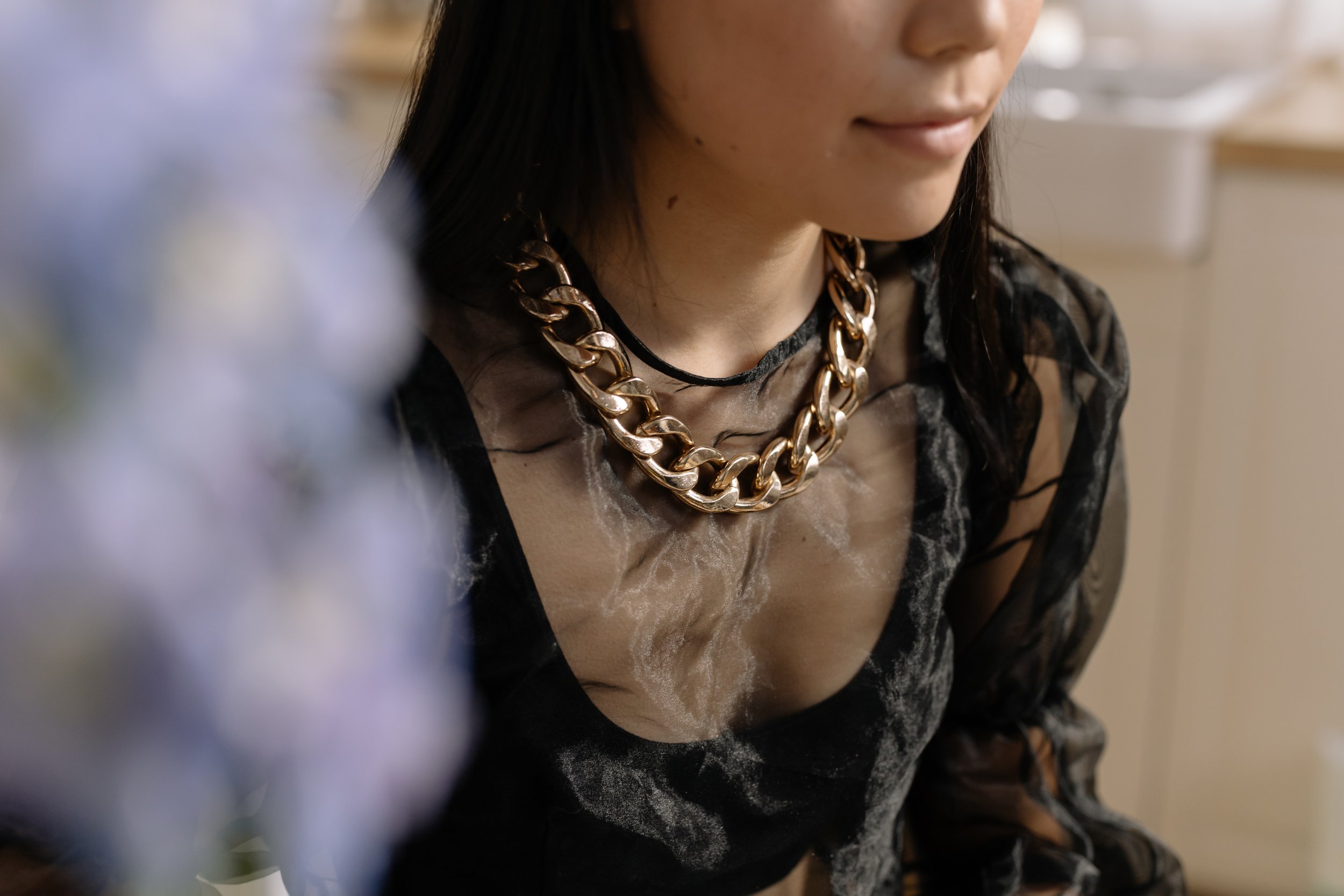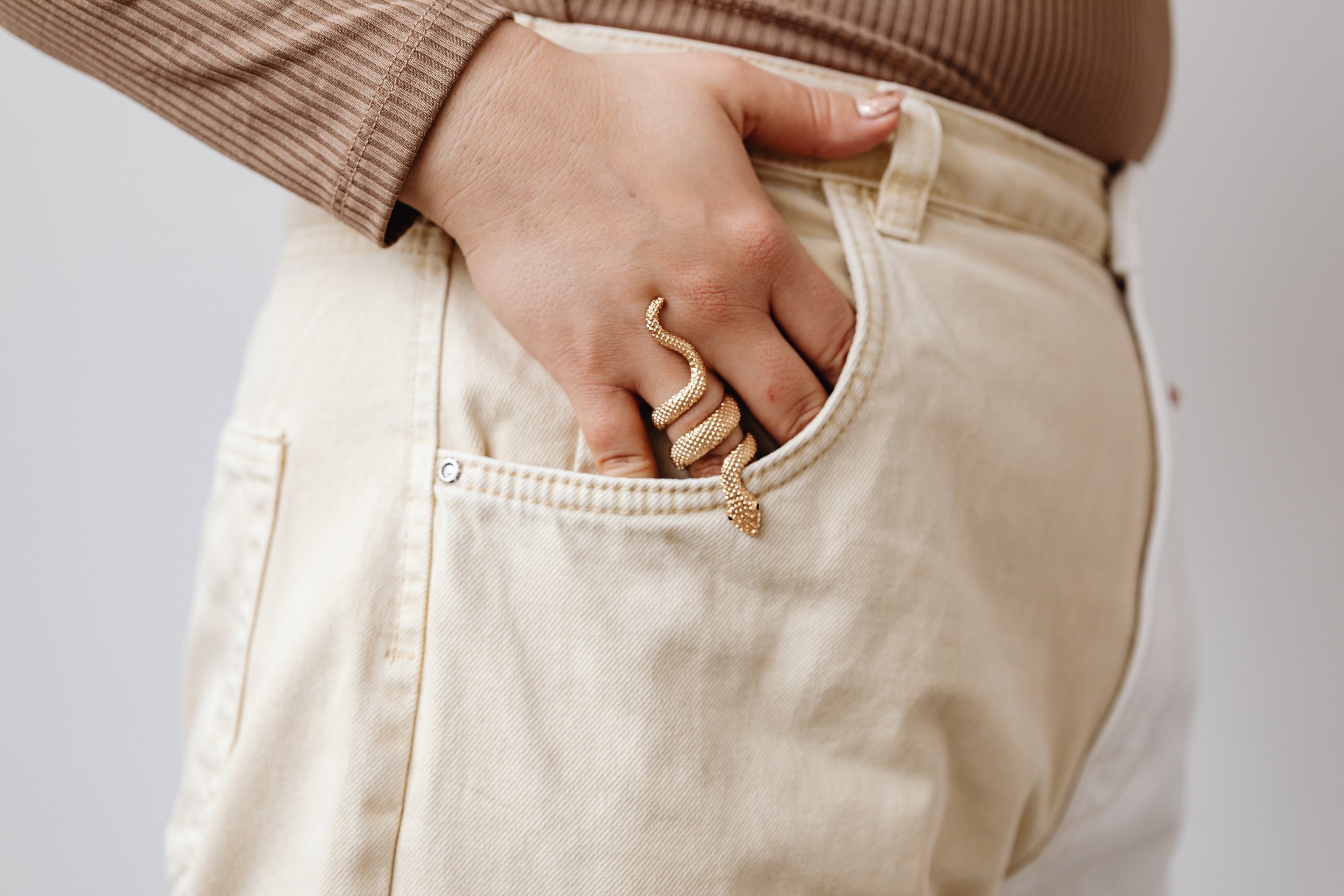Fast Fashion: Jewelry Edition
When we think of fashion, it’s normal to think about clothing, but jewelry is also a big part of the fashion industry. Fast fashion is when clothes and accessories are produced quickly to meet consumer demand. This can result in a lack of quality and also negative impacts on the environment because of the resources used at such a fast rate. Jewelry produced by fast fashion can have unethical and negative environmental consequences. This includes workshops where people are forced to work most of the day for low wages and fossil fuels that are emitted into the air during production.
The quality of jewelry greatly suffers when it is made quickly and sold for very cheap. The material for it often is made from a variety of places and is passed through many hands in the supply chain. This makes it hard to trace where jewelry was exactly made and how it was made. This means that the consumer cannot know the story behind their jewelry, so there is no way to know if it was made ethically. And, a lot of the time, fast fashion products are made in poor regions of the world where workers are in poor conditions and are receiving little pay.
Fast jewelry is a result of micro-trends that push the newest, trendiest items to consumers without paying a ton for them because they will go out of style soon. But when jewelry is mass-produced and has a short lifespan because of its trendiness, it is very likely to only be worn a couple of times. Pieces end up in landfills where they will not break down properly, because they are not exposed to the right conditions to decompose correctly, and can cause pollution to the air and water. It can also end up in landfills due to the lack of durability in the piece which results in broken jewelry.
Another reason fast jewelry is damaging is that they are often made from stolen designs. Designs are grabbed from a range of people including smaller artists that are trying to make a name for themselves. This is bad for the creatives because they lose customers when people want to buy cheaper alternatives and can lead to the brand not making enough revenue to support itself.
Cheap jewelry also poses a lot of health risks. From rashes to your skin turning green to possible carcinogens in the jewelry. Certain nickel and chromium compounds are human carcinogens and lead is a probable carcinogen.
With all that being said, here are some popular sustainable jewelry brands.
1. Mejuri
Photo Source: Mejuri
Mejuri values traceability and transparency. The brand aims to get more than 80% of its from recycled sources and the rest of it from sources that are approved by the Responsible Jewellery Council. The best part about this brand is that a lot of the items are completely affordable, ranging from $35 to $4,500. Sustainable jewelry can be quite expensive but Mejuri wants the everyday person to be able to have access to ethical and sustainable pieces.
2. Soko
Photo Source: Soko
Soko is a women-led, ethical and sustainable jewelry brand. The brand's mission is “use mobile technology to connect marginalized Kenyan artisans directly to the global marketplace,” according to its website. The brand has a large variety of options for everyone and all the items range from gold to wood to even pieces made from bone. Whichever material you pick, these pieces are truly unique.
3. Catbird
Photo Source: Catbird
Catbird is a Brooklyn-based jewelry brand with one mission: “make beautiful jewelry that lasts and has the lowest environmental impact.” All of the diamonds are ethically sourced and are either recycled or lab-created. Also, the studio works with 95% recycled gold and diamonds. This is a great shop if you are looking for specific pieces, such as engagement rings. Include price range and some cool parts of the brand that would resonate with readers.
The biggest lesson here is quality over quantity. It can be difficult trying to follow microtrends on social media, but if you pick quality jewelry over trendiness you can contribute to making a difference with sustainable fashion.
Written by Alyssa Barnes
Alyssa Barnes is a junior at the University of Florida majoring in Journalism. She loves writing about all things entertainment, beauty, and fashion. In her free time, you can catch her sipping a chia latte, working out, or binge-watching The Kardashians.





